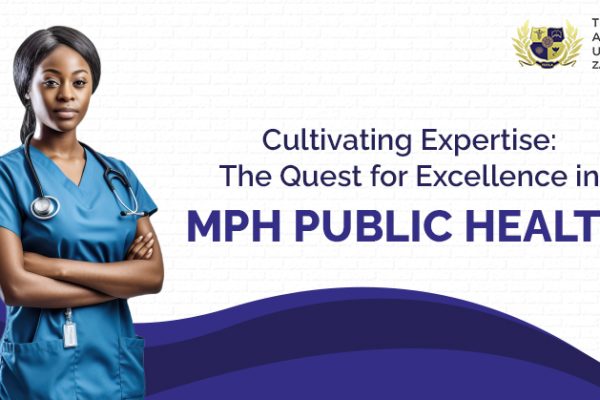|
Tired of Reading? Please listen to the blog
|
Blog Summary
Introduction
Embarking on a Master of Public Health (MPH) program is a transformative journey that equips individuals with a unique skill set essential for revolutionizing public health. In an era where global health challenges are increasingly complex, the demand for professionals with specialized expertise is higher than ever. This blog explores three critical skills you’ll acquire through an MPH program, paving the way for a fulfilling and impactful career in public health.
1. Epidemiological Mastery: Unraveling Health Patterns
Understanding the Basics:
The foundational phase of a Public Health Master’s program immerses students in the essentials of epidemiology, equipping them with a comprehensive understanding of how health patterns manifest in populations. This involves grasping key concepts such as incidence, prevalence, and risk factors. Students delve into the historical context of epidemiology, exploring its evolution as a discipline and its pivotal role in public health. Proficiency in data collection methods and study design is emphasized, laying the groundwork for effective health investigations.
Advanced Analytical Techniques:
As students progress, the curriculum advances to encompass sophisticated analytical tools essential for unraveling complex health patterns. Rigorous training in statistical methods, including regression analysis and modeling, enables students to decipher intricate relationships within health data. This proficiency is crucial for identifying subtle trends, determining causation, and predicting future health scenarios. Mastering these advanced techniques enhances the precision and reliability of epidemiological studies, empowering graduates to contribute meaningfully to public health interventions and policy decisions.
Real-world Application:
An integral component of the Master of Public Health Course involves translating theoretical knowledge into practical skills through real-world applications. Students engage in hands-on experiences, collaborating with public health agencies, research institutions, or community organizations. This practical exposure allows them to implement epidemiological principles in diverse settings, addressing actual health challenges. By applying their skills to authentic scenarios, students cultivate the expertise needed to design and execute effective epidemiological studies, ultimately preparing them to confront emerging health issues with evidence-based solutions. This holistic approach ensures that graduates not only understand the theoretical underpinnings of epidemiology but also possess the practical acumen to make a tangible impact on public health outcomes.

2. Health Policy and Management: Navigating the System
Embarking on an MPH program offers a transformative journey into Health Policy and Management, a discipline that hones three critical skills essential for reshaping the landscape of public health.
Policy Analysis:
Policy Analysis stands as a cornerstone within this domain, empowering students with the ability to dissect, evaluate, and influence public health policies. Through rigorous exploration, individuals gain a nuanced understanding of the legislative and regulatory frameworks that underpin healthcare systems worldwide. This skill extends beyond mere comprehension, fostering the capacity to critically analyze the impact of policies on public health outcomes. Graduates emerge with the expertise to navigate the intricate web of healthcare governance, armed with the tools to advocate for evidence-based policy changes that positively influence community well-being.
Strategic Planning:
Strategic Planning is a linchpin in addressing the multifaceted challenges within public health institutions. The program delves into resource allocation dynamics, instilling in students the art and science of formulating strategies that bridge health disparities and enhance access to healthcare services equitably. Beyond theoretical constructs, the emphasis is on practical implementation, ensuring graduates possess the acumen to maneuver through the complexities of real-world public health scenarios. Strategic planning becomes not just a theoretical exercise but a transformative tool for shaping impactful interventions.
Leadership in Public Health:
Leadership in Public Health emerges as the driving force behind effective change. The program’s focus on leadership is a holistic approach that goes beyond traditional notions. It nurtures skills in communication, collaboration, and decision-making within diverse and interdisciplinary teams. Recognizing that Masters in Public Health challenges are multifaceted and interconnected, the program prepares leaders who can navigate complexities, fostering a collaborative spirit essential for addressing the evolving needs of communities. The emphasis on leadership is not only about individual proficiency but also about cultivating a collective ethos geared towards positive transformation.

3. Community Engagement and Advocacy: Amplifying Voices
Community Needs Assessment:
Community Needs Assessment is the cornerstone of community-centered public health practice. MPH programs intricately train professionals to conduct thorough assessments, fostering an understanding of health disparities, cultural intricacies, and the social determinants of health that shape diverse populations. This skill empowers graduates to tailor interventions that are responsive to the specific needs of communities, ensuring relevance and efficacy in public health initiatives.
Cultivating Advocacy Skills:
Cultivating Advocacy Skills emerges as a powerful tool within the MPH journey. Aspiring public health professionals are equipped with the ability to champion health equity, social justice, and policy changes. The emphasis is not only on understanding the importance of advocacy but also on developing effective communication strategies to convey health information to diverse audiences. This skill is integral to mobilizing support and instigating positive behavioral changes within communities.
Collaborative Partnerships:
Collaborative Partnerships round out the trifecta, recognizing that Masters of Public Health Programs challenges demand collective efforts. MPH programs emphasize the art of building partnerships with community organizations, government agencies, and other stakeholders. These collaborative efforts amplify the impact of public health interventions, fostering sustainable improvements in community health. Graduates are thus equipped not only to listen to the voices of communities but also to work hand-in-hand with them, ensuring that public health initiatives are inclusive, culturally competent, and genuinely address the needs of diverse populations.
Conclusion
An MPH program is not just a degree; it’s a gateway to transformative learning that empowers individuals to revolutionize public health. Whether unraveling health patterns through epidemiology, navigating complex healthcare systems, or amplifying community voices through advocacy, the skills gained in an MPH program are instrumental in addressing the dynamic challenges of the modern public health landscape. As you embark on this educational journey, you’ll not only acquire the expertise needed for a successful career but also contribute significantly to the well-being of communities and populations around the world.











